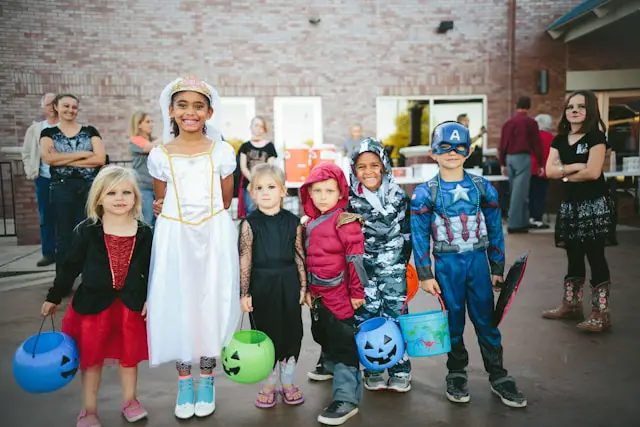
Social development is a critical aspect of a child’s overall growth.
It encompasses the skills and abilities that enable children to interact with others, form relationships, and navigate their social world.
Understanding social development milestones can help parents, caregivers, and educators support children in their journey towards becoming well-adjusted individuals.
In this article, we’ll explore these milestones from infancy to late childhood, offer tips on nurturing social development, discuss potential delays, and consider the impact of culture and the digital age.
- Read also: Understanding and Managing Impulsive Behavior in Children
- Read also: The Journey of Childhood – Personality Development in Childhood
Social Development Milestones: Age-by-Age Guide
Infancy (0-12 months)
During infancy, babies begin to lay the foundation for social interaction.
Key milestones include:
- Smiling and laughing: Around 2 months, babies start to smile at familiar faces. By 4-6 months, they often laugh and show excitement.
- Eye contact: Infants begin to make eye contact around 2 months, which is crucial for bonding and communication.
- Responding to voices: By 6 months, babies typically respond to their name and recognize familiar voices.
- Imitating expressions: Around 8-10 months, infants mimic facial expressions and sounds, a sign of early social learning.
Toddlerhood (1-3 years)
As toddlers gain mobility and language skills, their social development progresses rapidly:
- Parallel play: Around 2 years, toddlers play alongside peers without much interaction, known as parallel play.
- Imitation: Toddlers love to imitate adults and other children, which helps them learn social behaviors.
- Sharing and taking turns: By 3 years, children start to understand the concept of sharing and taking turns, though they may need guidance.
- Expressing emotions: Toddlers begin to express a wider range of emotions and may have tantrums as they learn to navigate their feelings.
Preschool (3-5 years)
Preschoolers continue to develop their social skills and begin to form more complex relationships:
- Cooperative play: By age 4, children engage in cooperative play, working together towards a common goal.
- Friendships: Preschoolers start forming friendships and can identify best friends.
- Understanding rules: They begin to grasp the concept of rules and can follow simple instructions in group settings.
- Empathy: Around 5 years, children show empathy by recognizing and responding to others’ emotions.
Early Childhood (5-8 years)
In early childhood, social skills become more refined, and children start to navigate more complex social dynamics:
- Group activities: Children participate in group activities and understand teamwork.
- Conflict resolution: They begin to develop conflict resolution skills, such as negotiating and compromising.
- Self-identity: Around 6-7 years, children form a clearer sense of self and their role within social groups.
- Communication skills: They improve their verbal and non-verbal communication skills, becoming more articulate and expressive.
Late Childhood (8-12 years)
Late childhood is marked by further refinement of social skills and a deeper understanding of relationships:
- Peer influence: Children become more influenced by their peers and seek acceptance within social groups.
- Moral development: They develop a stronger sense of right and wrong and can understand complex moral issues.
- Leadership and teamwork: Children take on leadership roles in group activities and sports, showing teamwork and responsibility.
- Deeper friendships: Friendships become more stable and emotionally significant, often based on shared interests and trust.

Nurturing Social Development
Creating a nurturing environment for children is essential for their social growth.
Here’s how you can help your child develop strong social skills:
Creating a supportive environment
Positive reinforcement
Encouraging and praising your child when they display positive social behaviors helps reinforce these actions.
For instance, if your child shares toys with a friend, acknowledge and praise their kindness.
This positive feedback motivates them to continue these behaviors.
Safe spaces
Ensure that your child has safe and structured environments where they can interact with others.
This could be a well-organized play area at home or a classroom setting where they feel secure.
A safe space allows children to explore social interactions without fear or anxiety.
Modeling behavior
Children learn a lot by observing adults.
By demonstrating good social interactions—such as sharing, listening, and showing empathy—you teach your child how to behave in social situations.
Your actions set a standard for how they should interact with others.
Building strong relationships
Quality time
Spend meaningful time with your child, engaging in activities you both enjoy.
This strengthens your bond and provides a solid foundation for their social development.
Quality time also gives you opportunities to model social behaviors and discuss important social concepts.
Meaningful conversations
Engage in conversations with your child about their day, their feelings, and their interactions with others.
This helps them articulate their thoughts and feelings, fostering better social understanding and communication skills.
Showing affection
Expressing love and affection helps your child feel valued and secure.
When children feel loved, they are more likely to develop healthy relationships and exhibit positive social behaviors.
Teaching social skills
Role-playing
Role-playing different social scenarios with your child helps them practice and understand various social situations.
For example, you can act out a situation where they need to share a toy or ask for help.
This practice helps them learn how to handle similar situations in real life.
Reading books
Reading stories that focus on themes like friendship, empathy, and social skills can provide valuable lessons.
Books often illustrate social interactions and emotional responses in a way that is easy for children to understand and relate to.
Discussing emotions
Have regular discussions with your child about their emotions and how to manage them.
Talk about different feelings and appropriate ways to express and cope with them.
This helps children understand their own emotions and those of others, which is crucial for building healthy social relationships.

Signs of Social Development Delays
While it’s normal for children to develop social skills at their own pace, there are certain signs that might suggest delays in their social development.
Identifying these signs early can help address any issues and support your child’s growth.
Difficulty forming attachments
Children who have trouble forming attachments may struggle with bonding with their caregivers or peers.
They might seem indifferent or detached, showing little interest in forming close relationships.
On the other hand, they might become overly clingy, having a hard time separating from their caregivers.
Lack of interest in social interactions
If a child shows little interest in playing with others or engaging in social activities, it might be a sign of social development delays.
For instance, they might prefer to play alone rather than with peers or avoid group activities.
This lack of interest in social interactions can impact their ability to learn important social skills and make friends.
Challenges with communication
Delays in language development or difficulties in understanding social cues can signal social development issues.
Children who have trouble expressing themselves, understanding others’ emotions, or responding to social interactions may struggle with communication.
These challenges can make it harder for them to interact effectively with others and build relationships.
Aggressive or withdrawn behavior
Behavioral issues like excessive aggression, frequent tantrums, or withdrawing from social situations can indicate social development delays.
For example, a child who frequently acts out or becomes very upset in social settings may have difficulty managing their emotions and navigating social interactions.

Social Development in Different Cultures
Cross-cultural comparisons
In some cultures, children are raised in close-knit communities where extended family members and neighbors play a big role in their upbringing.
This communal living helps children learn social skills through frequent interactions with a broad group of people.
In these settings, the focus is often on collective well-being and shared responsibilities.
On the other hand, in cultures that value individualism, children might have more opportunities for personal achievements and independent activities.
Here, social skills are often developed through more individual interactions rather than communal ones.
This emphasis on independence influences how children learn to communicate and negotiate with others.
Impact of cultural Values
The values of a culture also shape how children interact.
In cultures where respect for elders and family roles is important, children learn to interact with authority figures in specific ways, such as showing respect or following set rules.
This can affect how they approach social situations.
In cultures that encourage self-expression and autonomy, children are often taught to voice their opinions and assert themselves.
This focus on individual expression helps them navigate social interactions with a greater emphasis on personal assertiveness.

Social Development in the Digital Age
The rise of digital technology has transformed how children develop social skills, presenting both challenges and opportunities.
Challenges
Reduced face-to-face interaction
With the increasing use of digital devices, children may spend less time engaging in face-to-face interactions.
This reduction can affect their ability to develop strong interpersonal skills and recognize social cues.
Cyberbullying
The digital age has brought new forms of bullying, such as cyberbullying.
This can have serious impacts on a child’s self-esteem and social development, as negative interactions online can be pervasive and harder to escape.
Overreliance on technology
Excessive screen time can lead to overreliance on technology for social interactions.
This might limit opportunities for real-world experiences and hinder the development of essential social skills.
Privacy and safety concerns
Children may not fully understand the risks associated with sharing personal information online.
This lack of awareness can lead to potential safety issues and affect their social confidence.
Opportunities
Global connectivity
Technology allows children to connect with peers from around the world, fostering cross-cultural friendships and broadening their social experiences.
This can enhance their understanding and appreciation of different cultures.
Skill development
Digital platforms offer opportunities for children to develop skills in communication, collaboration, and problem-solving through online games and educational tools.
These skills can be valuable in both virtual and real-world settings.
Support networks
Online communities and social media can provide support and a sense of belonging, especially for children with niche interests or those who may feel isolated in their offline environments.
Enhanced learning tools
Technology provides access to a wealth of resources and educational tools that can support social learning.
Interactive apps and online programs can teach social skills, empathy, and emotional intelligence.

- Read also: Answered: The Psychology of Moral development in Children
- Read also: Parent Guides: Behavioral Modification Techniques for Children
Conclusion
Understanding and supporting social development is essential for helping children navigate their world.
By recognizing milestones, nurturing growth, and addressing potential delays, parents and caregivers can foster healthy social development.
Remember, each child is unique, and patience, love, and support go a long way in guiding them towards becoming socially adept individuals.


